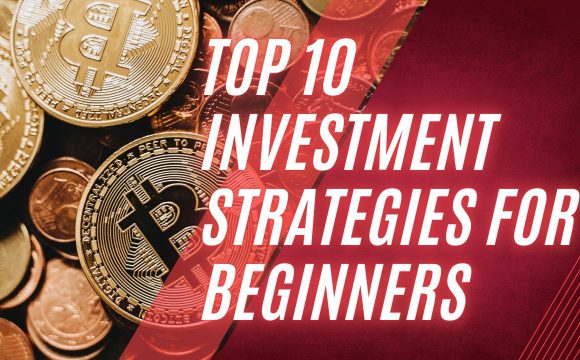Understanding Inflation: The Sneaky Thief of Your Wealth
What is Inflation?
Inflation is the gradual increase in prices over time, which erodes the purchasing power of your money. Think of it as a mischievous little gremlin that quietly steals value from your hard-earned cash while you’re busy living life. One day, you’re happily buying a loaf of bread for $2, and the next, you find yourself shelling out $3 for the same loaf. It’s the classic case of “Where did my money go?”
A Brief History of Inflation: Lessons from the Past
Inflation has been a persistent phenomenon throughout history. From the hyperinflation in Germany during the 1920s to the inflation spikes in the 1970s, these events have shown us just how unpredictable and impactful inflation can be. Learning from these events helps frame our understanding of why we should care about inflation today.
Why Does Inflation Matter to Investors?
For investors, inflation is a vital concern because it affects the real return on investments. If your investment portfolio grows by 5% in a year, but inflation rises by 3%, your true return is only 2%. It’s like running on a treadmill: you’re exerting effort, but if you don’t adjust for inflation, you’re really not getting anywhere.
The Relationship Between Inflation and Interest Rates
Often, inflation leads to higher interest rates as central banks attempt to control rising prices. This, in turn, can affect borrowing costs and overall economic growth. In this juggling act, balancing inflation with stable interest rates is like trying to keep three balls in the air—difficult, but essential.
How Inflation Affects Different Investment Types
Stocks: Riding the Rollercoaster
Stocks can be a mixed bag during inflationary times. On one hand, companies may pass on rising costs to consumers, boosting their revenues. On the other hand, increased costs can squeeze profit margins. Much like a thrilling rollercoaster, the ride can be exhilarating, but it can also leave you feeling queasy if you aren’t prepared.
Bonds: The Fixed Income Fiasco
Bonds, particularly long-term ones, can feel like a bad blind date during inflation. They offer fixed interest payments, which become less appealing as inflation eats away at their value. Think of them as that one friend who keeps bringing takeout when you want to try new restaurants. They might not be bad, but they can certainly hinder your excitement.
Real Estate: The Property Puzzle
Real estate often serves as a hedge against inflation. As property values and rents rise, real estate investors can potentially see their income increase. However, not all properties are created equal, and the location, timing, and market trends can play major roles in whether real estate is your golden ticket or an albatross.
Commodities: The Gold Standard (and Beyond)
Commodities, like gold and oil, generally perform well during inflation. They act as a physical representation of value, often gaining in price as the currency depreciates. If inflation is a thief, commodities are the bouncers at your financial club—protecting your wealth from unwanted guests.
Mutual Funds and ETFs: Navigate with Caution
Mutual funds and ETFs can offer a diversified approach to inflation. Some funds focus on sectors that traditionally outperform during inflationary periods, such as energy or consumer staples. It’s crucial to do your homework and find those gems—a mix of strategy, luck, and a little bit of intuition can go a long way.
Decoding Your Investment Strategy in an Inflated World
The Importance of Diversification
Diversification is like assembling a well-balanced meal: you don’t just want a plate of carbs. By spreading your investments across different asset classes, you can cushion against inflation’s effects. Like a buffet, it’s best to sample a little bit from each category to create a fulfilling and balanced financial future.
Adjustable Strategies: Finding Your Flexibility
Inflation isn’t a one-size-fits-all scenario; adjusting your investment strategy is crucial. You might decide to lean more into growth stocks or even add some inflation-protected securities to your mix. Flexibility is the key to adapting to new changes—just like finding new workout routines that keep you fit and engaged!
Growth Stocks vs. Value Stocks: The Tug of War
In inflationary times, growth stocks often attract investors for their potential to increase revenue. However, value stocks can sometimes offer stability and dividends. It’s a constant battle—think of it as cheering for your favorite sports team with an unwritten rule that you can only support one at a time.
The Role of Dividends: Income Amidst Inflation
Dividends can be a lifesaver during inflationary periods. Companies that regularly pay dividends can provide a steady income stream, helping to offset the impacts of rising costs. They’re like those reliable friends who always bring snacks—no matter the situation, they’ve got your back!
Tactical Moves to Combat Inflation
Investing in Inflation-Protected Securities: What Are They?
Inflation-Protected Securities, such as TIPS (Treasury Inflation-Protected Securities), adjust with inflation. Investing in these can be a smart way to protect your assets from inflation’s grasp. Think of them as your financial seatbelt—providing protection during the wild rollercoaster of inflation.
Commodities as a Hedge: Gold, Oil, and More
Investing in commodities can be an effective buffer against inflation. From precious metals to agricultural goods, commodities often increase in value when inflation rises. They act as the heavyweight champions in your investment ring, absorbing the blows that inflation throws at you.
Real Estate Investment Trusts (REITs): Real Estate’s Flexible Friend
REITs allow individuals to invest in real estate without the hassle of property management. With many REITs focusing on income-producing properties, they can be an appealing option during inflationary times. They’re like having your cake and eating it too—enjoying real estate profits without the property upkeep.
Exploring Cryptocurrencies: Digital Gold or Fool’s Gold?
Cryptocurrencies can also act as a hedge against inflation. With advocates calling Bitcoin “digital gold,” these assets appeal to those looking to diversify. However, the volatility of cryptocurrencies means they can be as unpredictable as a cat on a hot tin roof—exciting, but you might end up jumping back!
Practical Tips for Everyday Investors
Start with an Emergency Fund: Cushioning the Blow
Having a robust emergency fund can help you weather inflation without derailing your financial goals. A good rule of thumb is to save three to six months’ worth of expenses. This cushion provides peace of mind and allows you to stay focused on your investments, even when the economic climate gets shaky.
Regular Portfolio Reviews: Don’t Let Dust Settle
Keep your investment portfolio fresh! Regularly reviewing your holdings can help you stay aligned with your goals and make necessary adjustments based on inflation. Like cleaning out your closet, perhaps it’s time to say goodbye to those outdated investments that just aren’t serving you anymore.
Automation and Dollar-Cost Averaging: The Power of Consistency
Automating your investments and utilizing dollar-cost averaging can help mitigate the impact of price fluctuations over time. Instead of trying to time the market (which is as successful as predicting the weather), this approach helps you invest consistently and take advantage of long-term growth.
Stay Informed: Knowledge is Your Shield
Staying informed about economic trends, including inflation rates, allows you to make educated decisions about your investments. It’s like being in a kitchen stocked with spices; the right knowledge enhances your investment recipe and ensures you avoid bland choices.
Humor and Humanity: Keeping a Light Heart During Economic Turbulence
Embracing Imperfection: Investing is Not a Science
Investing is as much an art as it is a science, and that can lead to beautiful (or hilarious) outcomes. Don’t aim for perfection; instead, embrace your mistakes with a smile. Who hasn’t bought an awful stock that felt like a great idea at the time?
Laughing Through Losses: Why It’s Okay to Smile at Bad Days
When markets dip, try not to take it too seriously. Sometimes, laughing at the absurdity can lighten your mood. After all, any seasoned investor has at least one “what was I thinking?” story up their sleeve.
Investing Like a Pro, but with Dad Jokes
Investing doesn’t have to be all serious business. Injecting humor into financial discussions can make even the most daunting topics more palatable. After all, what do you call a fake noodle? An impasta. And that’s just the kind of light-hearted approach that can make investing a little less daunting!
Long-Term Thinking: The Key to Weathering Inflation
Patience is a Virtue: Compounding Your Way to Success
Investing is a long game. Compounding returns can make a monumental difference over time. Your investments grow like a snowball rolling downhill—slow at first, but really gaining momentum as it goes. Remember, good things come to those who wait!
Setting Realistic Financial Goals: Turning Dreams into Plans
Set achievable financial goals that account for inflation. Instead of dreaming of owning a yacht, maybe aim for that vacation home first—one step at a time will keep you motivated and help you manage inflation’s impact.
The Importance of Staying Disciplined: Don’t Sweat the Small Stuff
Stay disciplined in your investment strategy and avoid reacting impulsively to market fluctuations. It’s akin to going on a diet; you don’t drop everything after one dessert day! Focus on your long-term strategy and not the latest market hiccup.
The Emotional Side of Investing in Inflationary Times
Fear and Greed: The Battle Within
Investing often triggers our emotions—fear and greed can lead to rash decisions. Recognizing these feelings and managing them can improve your investment decisions. Having a buddy system can help keep those emotions in check!
Staying Calm: Meditation and Financial Decisions
Meditation and mindfulness can help reduce anxiety surrounding investments. Taking a step back and focusing on your breathing can create clarity when the market feels chaotic. You can easily transform from an emotional wreck to an investor zen-master!
Building a Support Network: The Power of Sharing
Having a support network of fellow investors can provide a sense of community. Sharing tips, fears, and successes can help you remain grounded in your investment journey. It’s like being part of a book club, but instead of discussing novels, you’re navigating the thrilling plot twists of the stock market!
Conclusion: Your Action Plan for Staying Ahead of Inflation
Recap of the Strategies Discussed
In summary, understanding inflation and its impact on various investment types is crucial for navigating financial waters. The tactics we discussed—diversification, tactical moves, and emotional management—are your best defenses.
Final Encouragement: Taking Action with a Smile
As you gear up to face inflation head-on, remember that every investor has weathered storms before. The key is to adapt and stay informed, all while keeping a sense of humor about the process. After all, in the grand theater of investing, it’s not just about the bottom line—but about enjoying the show! So put on your best smile, buckle up, and let’s navigate this wild ride together.







